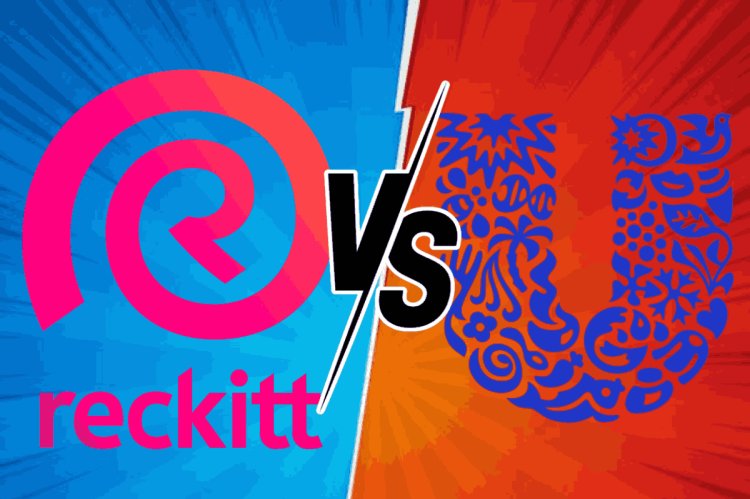Hindustan Unilever Ltd. v Reckitt Benckiser (India) Pvt. Ltd.
This legal case analysis delves into a dispute between Hindustan Unilever Limited (HUL) and Reckitt Benckiser (India) Pvt. Ltd. concerning alleged disparaging comparative advertisements for their toilet cleaner products, 'Domex' and 'Harpic', respectively. The court's decision emphasizes the significance of accurate and non-misleading advertising, highlighting the boundaries of permissible commercial speech and the consequences of infringing upon them. The judgment underscores the importance of fair and truthful advertising practices in upholding market integrity and consumer trust.

Hindustan Unilever Ltd. v Reckitt Benckiser (India) Pvt. Ltd.
FAO(OS)(COMM) No. 157 of 2021
Decided on: 13/04/2023
Brief Facts:
HUL is a company based in India that manufactures, markets, and sells various consumer products, including food and refreshments, cosmetics, toiletries, floor cleaners, toilet cleaners, toilet soaps, washing soaps, and detergents. Reckitt, on the other hand, produces, packages, sells, and distributes various fast-moving consumer goods, such as antiseptic liquid, toilet care products, surface care pharmaceuticals, insecticides, and food products.
Hindustan Unilever Limited, also known as HUL the plaintiff, manufactures and markets a toilet cleaner under the trademark 'Domex', for which they were granted a patent for using a technology that enhances the malodor fighting capabilities by extending the period of its effectiveness.
Reckitt Benckiser (India) Pvt. Ltd., referred to as Reckitt the defendant, has been manufacturing a well-known toilet cleaner under the trademark 'Harpic' in India since 2001. They have obtained trademark registrations for the word mark 'HARPIC' and the shape of the bottle used for packaging 'Harpic' products in India.
Contentions of the Appellant:
The lawyer representing the Appellant made a case that the Single Judge bench had erred by assuming that the videos in question had belittled any product. According to him, there was no basis for this assumption, and the videos only promoted the Appellant's product, 'Domex,' without disparaging any other. He also argued that the Single Judge's assumption that the toilet cleaner bottle shown in the videos was identical to the Respondent's product, 'Harpic,' was incorrect, as a comparison between the two would reveal differences.
Furthermore, he highlighted that the videos had a disclaimer stating that the regular toilet cleaner did not use water-repellent technology. Additionally, he refuted the Respondent's claim that they had a registration for the bottle's shape, citing documents that showed that the registration was for the device marks on the bottle and not its shape.
Contentions of the Respondent (Reckitt):
The lawyer representing the Respondent argued that the advertisement in question was disparaging because it depicted the part of the toilet bowl cleaned by Harpic as smelly and emitting an unpleasant odor. He claimed that the Appellant's assertion that their product was superior was untrue, as it was based solely on the use of a chemical compound called 'Saline,' which made the surface hydrophobic. However, he pointed out that this overlooked the fact that toilet bowls were made of ceramic and already had a smooth surface that repelled water. He also claimed that the Appellant's product did not have any additional advantage over Harpic in terms of reducing odor.
Furthermore, he argued that tests conducted by the Respondent's third-party laboratories showed that there was no difference in effectiveness between the Appellant's product (Domex) and The Respondent's product (Harpic). Both products were effective in cleaning germs at the time of usage but were ineffective after subsequent wash cycles.
Court Judgement:
The Court remarked that while commercial speech is protected under Article 19(1)(a) of the Indian Constitution, protection cannot extend to misrepresentation or advertisements that are contrary to law (Tata Press Ltd. v. Mahanagar Telephone Nigam Limited & Ors. (1995) 5 SCC 139). The Court in the case of Reckitt Benckiser (India) Pvt. Ltd. v. Hindustan Unilever Limited FAO(OS)(COMM) 149/2021 & Colgate Palmolive Company v Hindustan Unilever Limited (2013) SCC Online Del 4986, clarified that puffery and hyperbole, which are exaggerated statements made in advertisements to attract customers, do not have any binding effect as representations or warranties. The Court also stated that such statements do not hold good in situations where they are made as representations of fact.
The Court also noted that while comparative advertisements that involve some amount of disparagement are permissible, it is not permissible to denigrate or disparage the goods of another person. The Court also stated that honest comparative advertisements are permissible as long as the statements of fact made in the advertisements are accurate and true, and the overall message delivered by the said statements of fact is not misleading.
The High Court directed the Appellant to remove all references to The Respondent’s products. The Court found no flaw in the impugned verdict and hence the current appeal was dismissed.
Court Analysis:
The legal dispute between Hindustan Unilever Limited (HUL) and Reckitt Benckiser (India) Pvt. Ltd. centered on alleged disparaging comparative advertisements regarding their respective toilet cleaner products, 'Domex' and 'Harpic'. The court upheld the importance of accurate and non-misleading advertising, emphasizing that while puffery and hyperbole are protected forms of commercial speech, they do not extend to misrepresentations or statements contrary to law. The judgment clarified that while comparative advertisements are permissible, denigration or disparagement of another's goods is not acceptable. The High Court's decision to uphold the removal of references to the respondent's products in the appellant's advertisements underscores the importance of fair and truthful advertising practices in maintaining market integrity and consumer trust.












